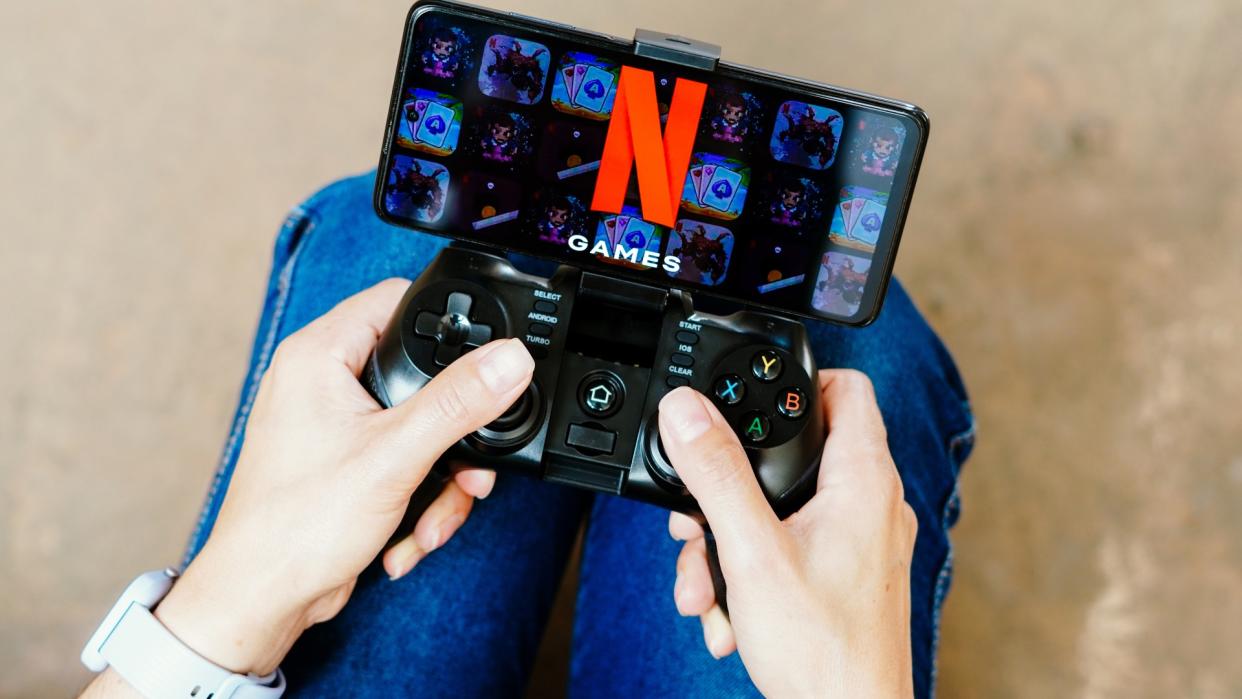Netflix's epic quest into gaming

Since announcing plans to expand into video games, executives at the streaming giant Netflix have kept plans close to the vest. Despite tripling its existing library of mobile games, "subscribers have largely shrugged their shoulders," CNBC noted. So far, as of Sept. 2023, less than one percent of Netflix’s 247.15 million subscribers play a game daily, according to data compiled by Apptopia.
Netflix's progress may seem to be moving glacially, but executives say that's all part of the plan. “This trajectory is not dissimilar from what we’ve seen before,” the company's Co-CEO Greg Peters said on the company’s prerecorded earnings call per CNBC. The company planned to take a “crawl, walk, run" approach, though they saw "a tremendous amount of opportunity to build a long-term center value of entertainment,” Peters added.
Whether Netflix can compete with major players like Sony, Microsoft, and Nintendo may not be clear. Still, the company has been making moves that have led to speculation and rumors about how Netflix plans to carve out its space in the video game industry.
What has Netflix done since first announcing its push into video games?
Netflix has been building an in-house team of gaming experts to lead the charge into the industry. In July 2021, the company hired former Electronic Arts mobile gaming Mike Verdu to oversee its new gaming division, Game Rant reported. Verdu was used to lead Meta's gaming studio. Executives also brought on Joseph Staten, former creative chief for Microsoft’s “Halo Infinite” game, who announced he'd be joining Netflix as “Creative Director for a brand-new AAA multiplatform game and original IP,” in a post on X, formerly known as Twitter.
The company has also begun acquiring game studios to build its offerings, including Night School Studio, in 2021. The studio was behind Netflix's first internally developed game, “Oxenfree II,” CNBC reported. The following year, the company bought Boss Fight Entertainment, known for action and storytelling games, and Next Games, which has made games based on Netflix’s “Stranger Things” and AMC Networks’ “The Walking Dead.”
Netflix has been slowly setting the foundation for more high-end games that you can stream on PC or television. In the meantime, it has been focusing on building a catalog of mobile games, up to 77 from 24 over the last year. The games are free with a Netflix membership and can be downloaded and played on Android and Apple phones.
What's on the horizon for Netflix's gaming studios?
Netflix has its sights set on adding a number of mobile games based on some of its most popular programs, including "Squid Game" and the hit supernatural comedy “Wednesday,” according to what sources close to the matter told the Wall Street Journal. They also indicated that the company is discussing games based on “Extraction,” its Sherlock Holmes series, and “Black Mirror.” The streamer is also rumored to be developing a "Grand Theft Auto" game through a licensing deal with Take-Two Interactive Software.
Developer Ubisoft has also announced a partnership with Netflix to develop several mobile games, including an Assassin’s Creed game to go with a live-action series in the works, Verge reported.
In August, the company launched a beta test for streaming their games in Canada and the United Kingdom. The feature allows you to stream games from the cloud onto your television or computer, which you can play with an app that turns your phone into a controller. Netflix recently expanded the feature for a “limited” beta test in the United States in a blog post. Similarly to the first round of testing, the only games available to stream are Night School Studio's "Oxenfree" and another game called "Molehew’s Mining Adventure."
Despite its recent games push, Netflix is not hoping to become a replacement for console gaming, Netflix gaming studio head Verdu previously told Tech Crunch. “It’s a completely different business model," he added. "The hope is over time that it just becomes this very natural way to play games wherever you are,” Verdu said.

